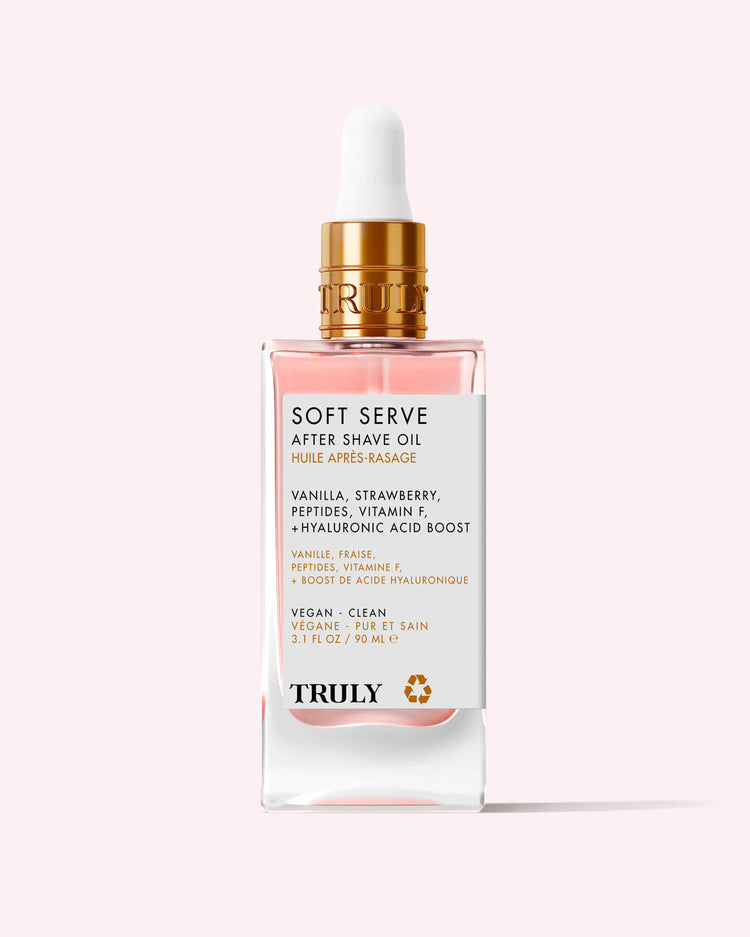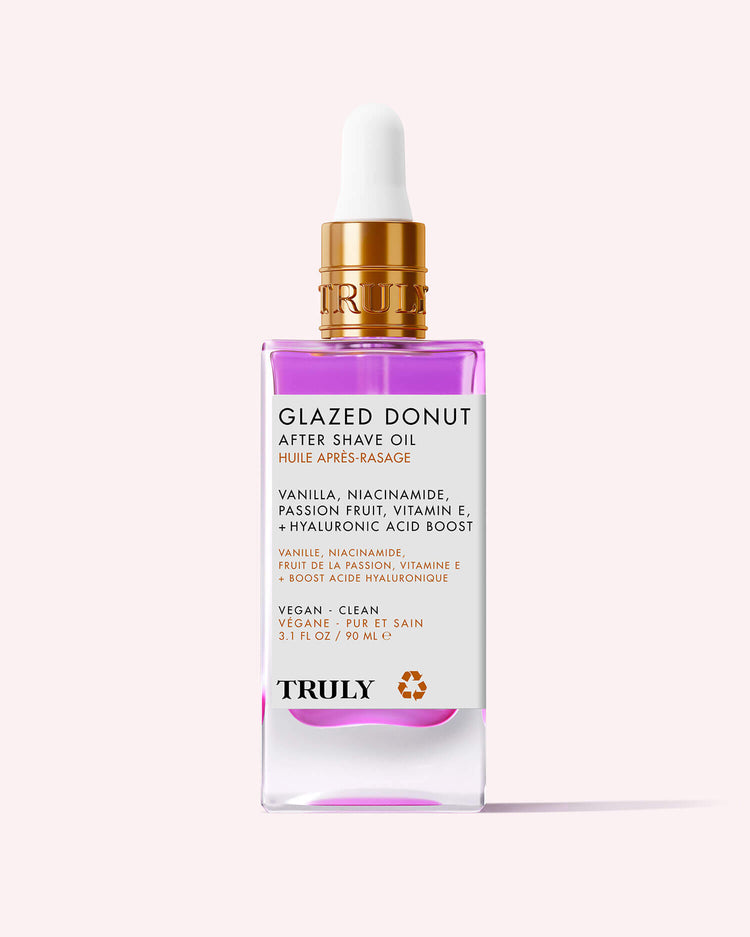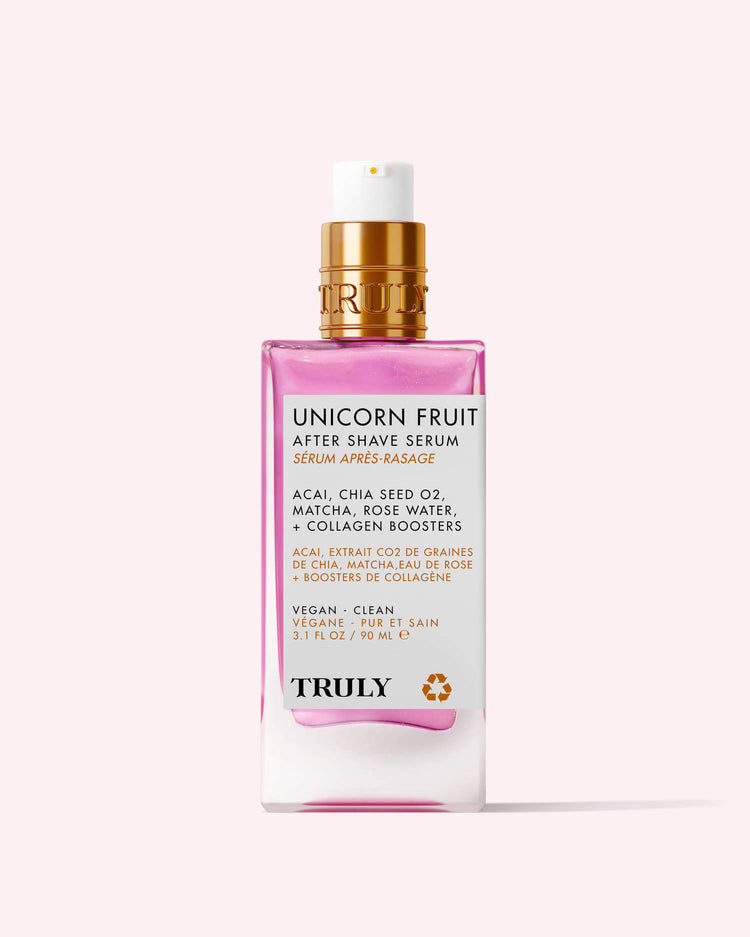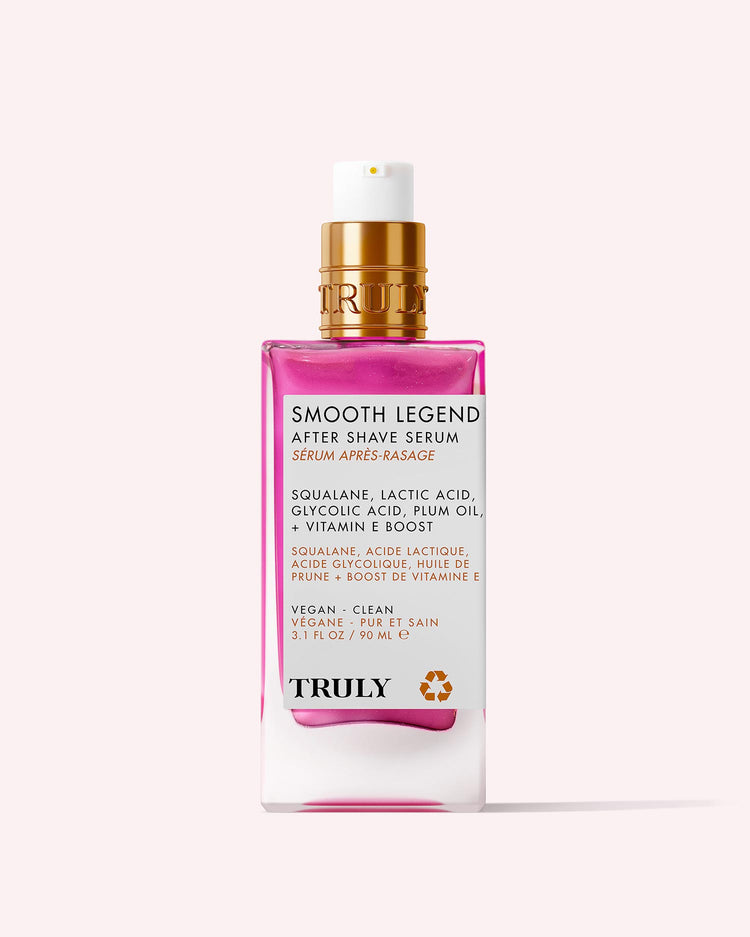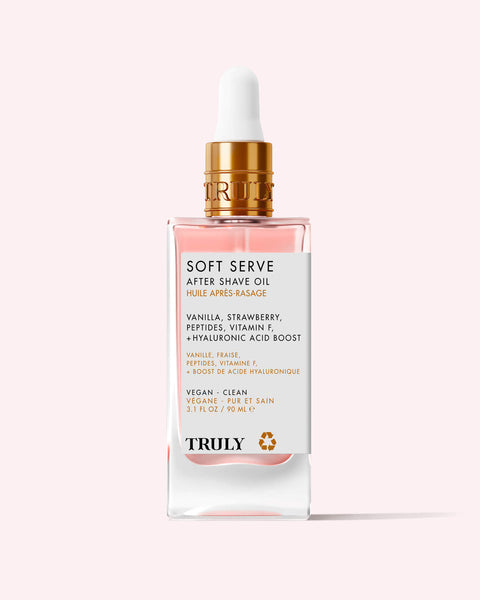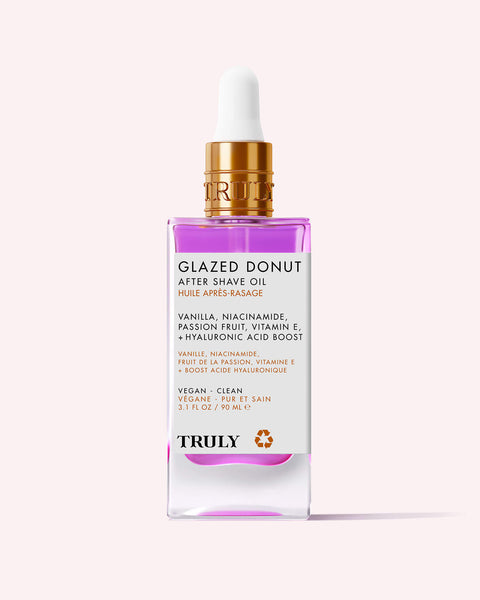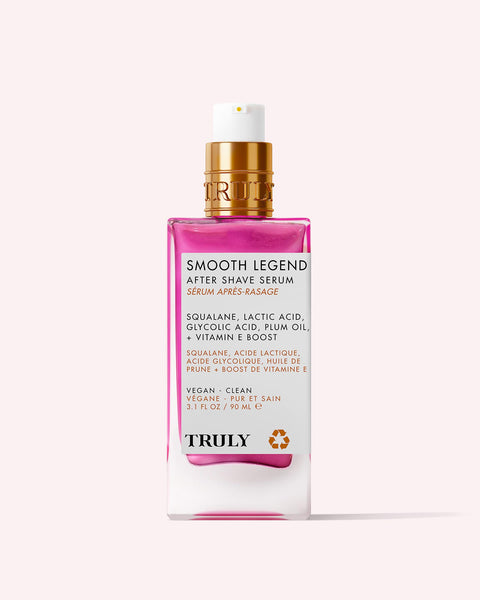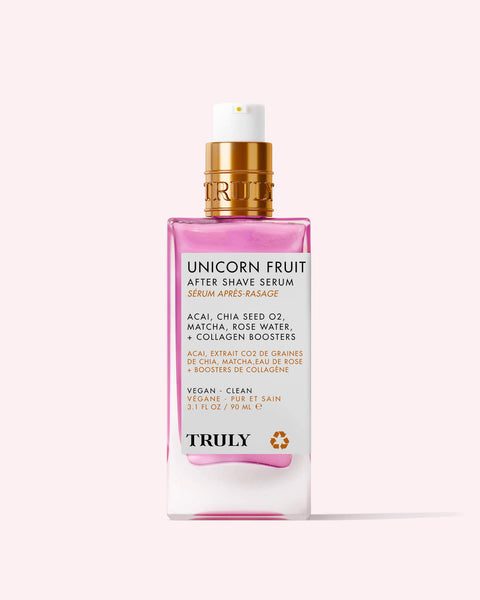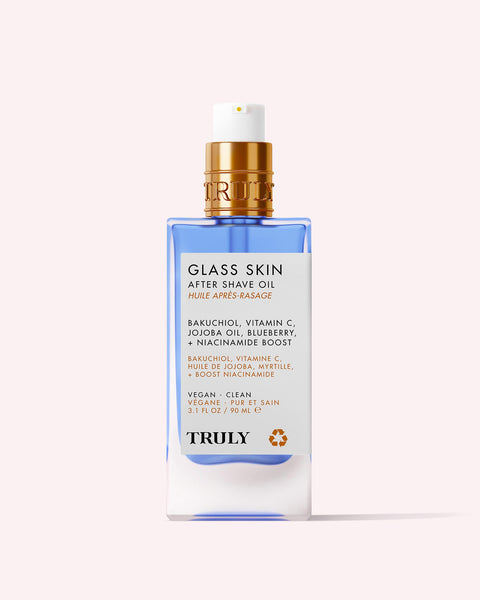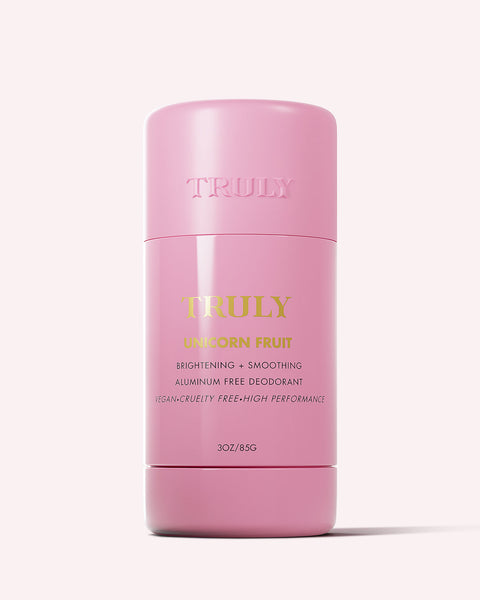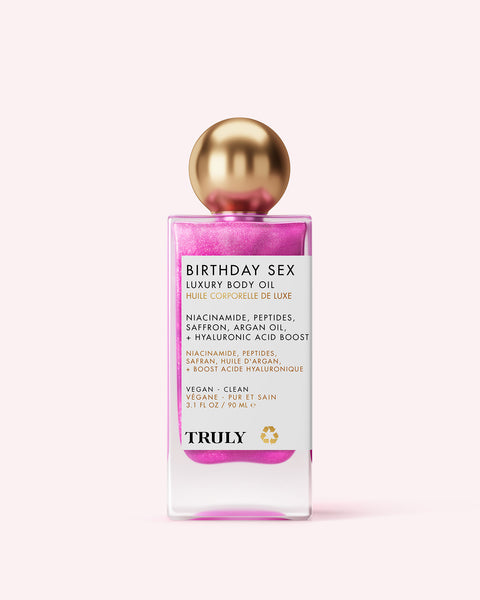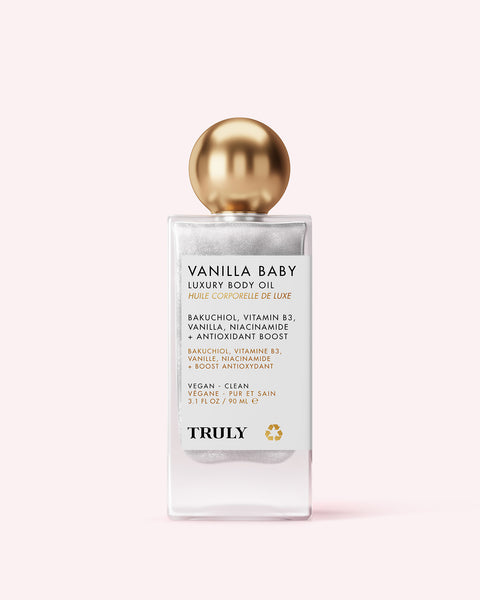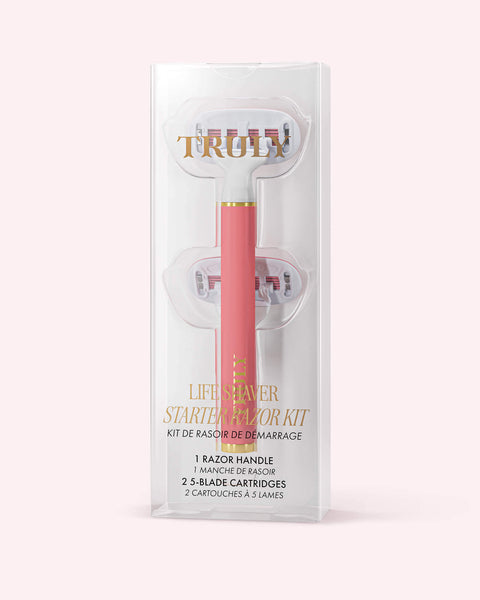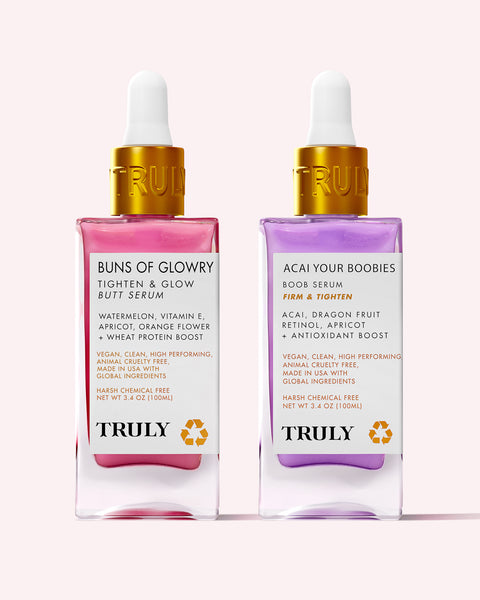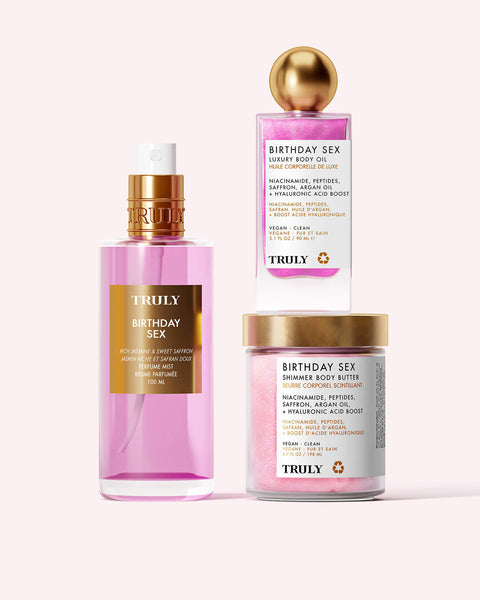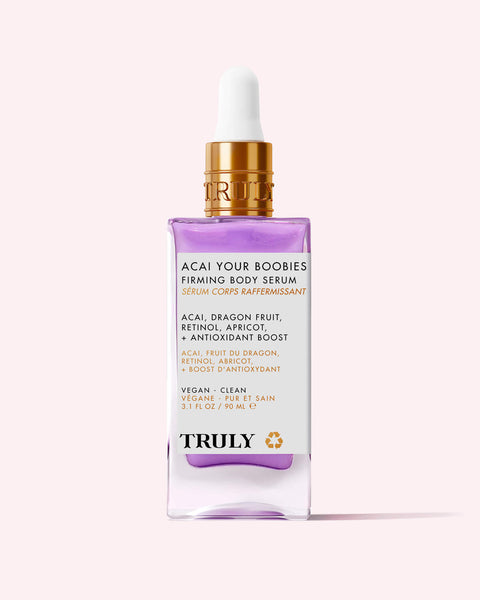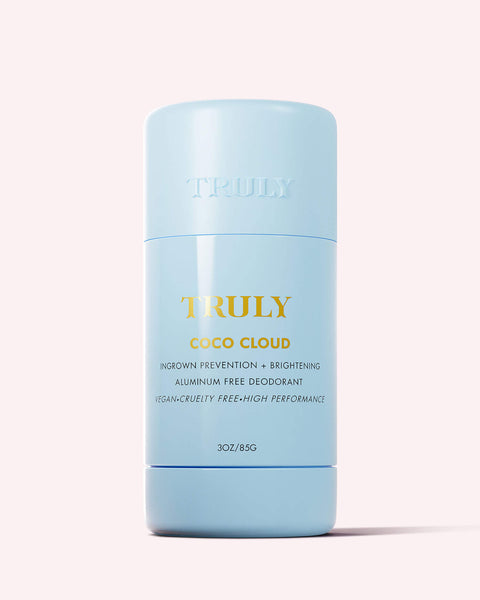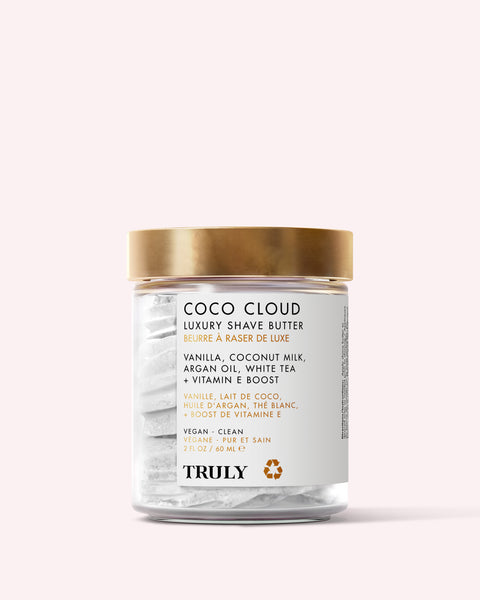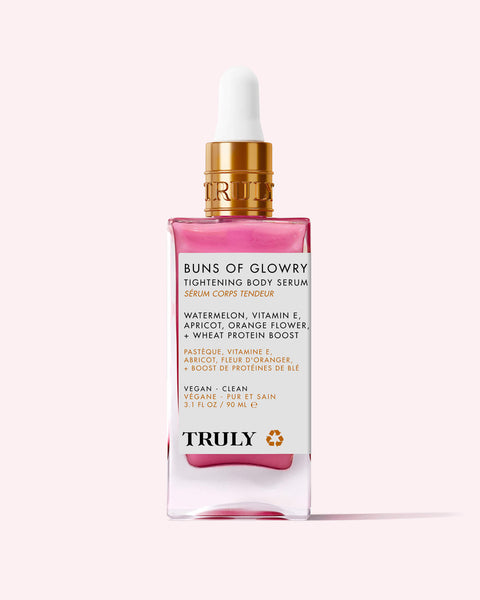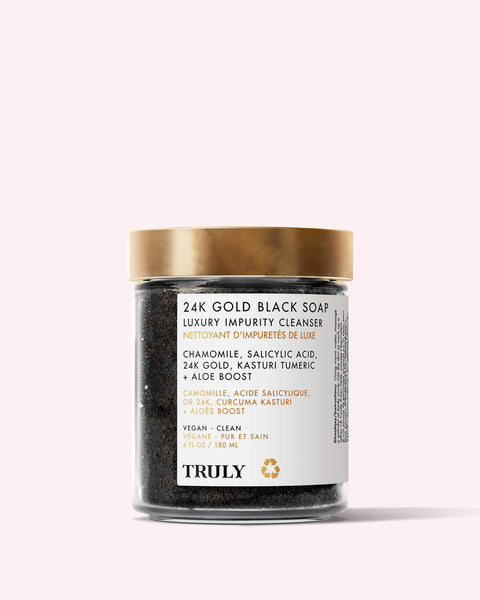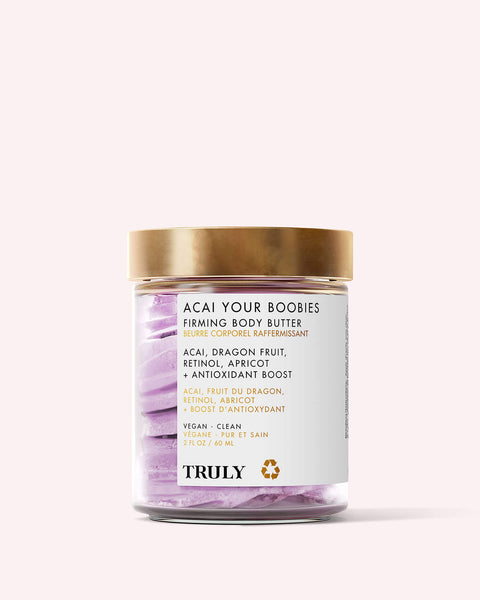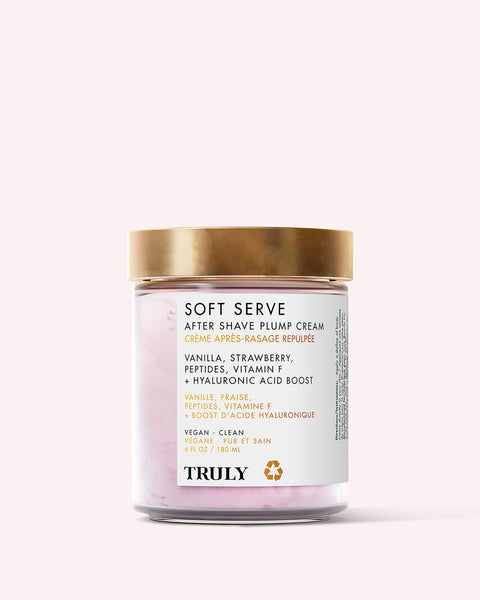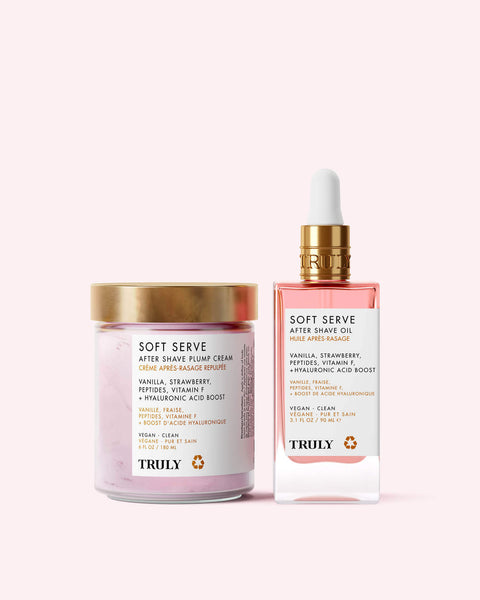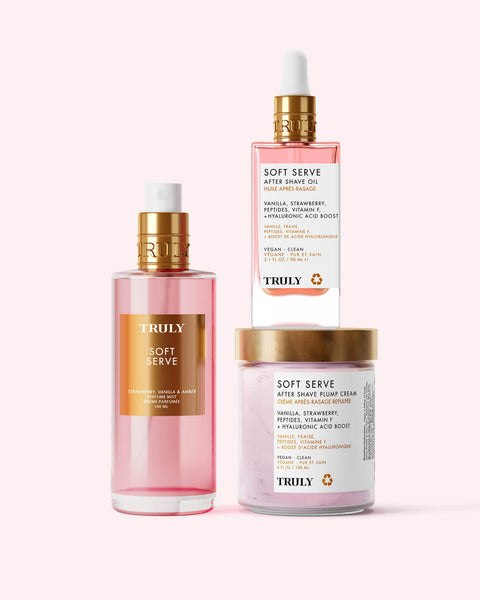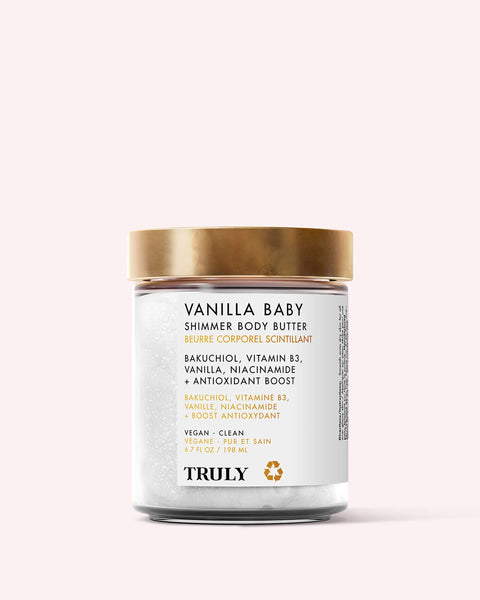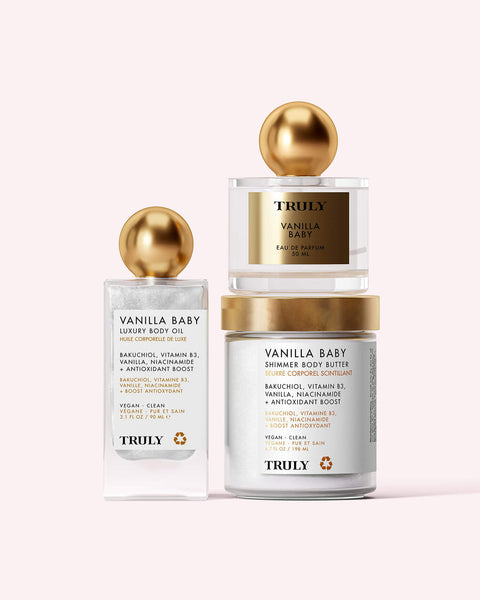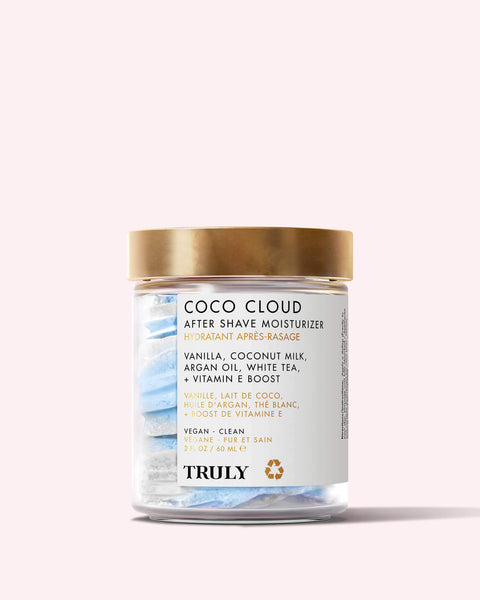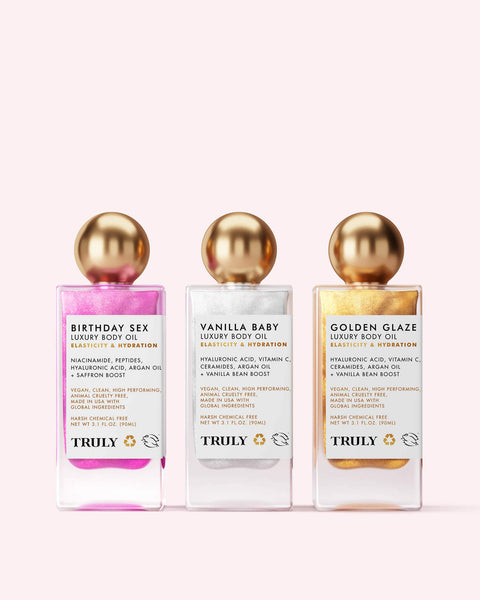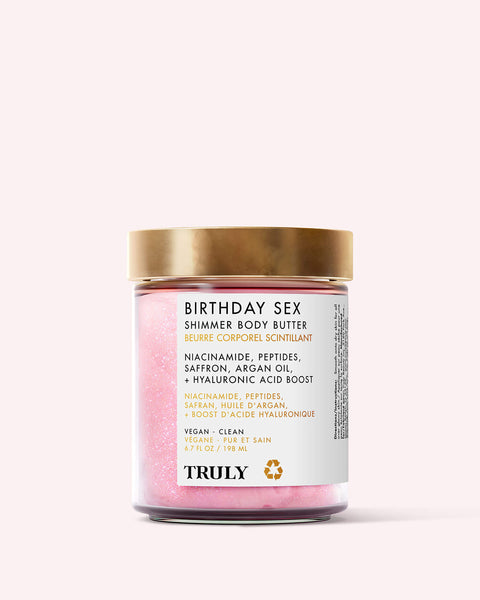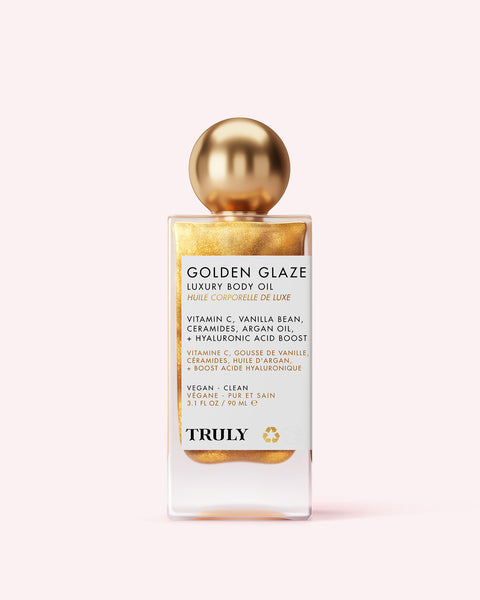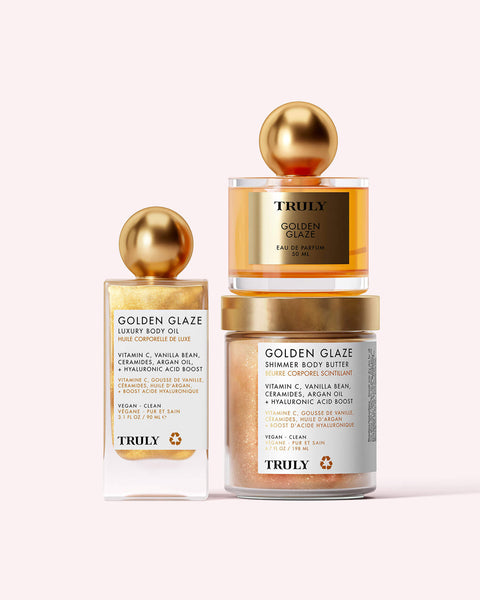What is Vitamin C Serum: Ultimate Guide

Vitamin C serum can work wonders for your skin. From promoting collagen production to inhibiting melanin production and protecting against sun damage, there are numerous skincare benefits of vitamin C serum. But what is vitamin C serum and is it suitable for your skin?
Whether you’re dealing with fine lines, dullness, or hyperpigmentation, vitamin C serums can benefit almost everyone. Here’s what you need to know about vitamin C serum, including what it can do for your skin and how to use it in your skincare routine.
What is Vitamin C Serum?
A vitamin C serum is a skincare product that contains vitamin C (also known as ascorbic acid or L-ascorbic acid). It typically has a liquid or gel consistency and is applied topically to the skin. Because the vitamin C is in serum form, it means you get a more potent, higher concentration of the active ingredient—making it more effective at targeting skin concerns like dark spots and dullness.
The benefit of vitamin C is that it’s a powerful antioxidant. It helps to shield the skin from free radicals, which break down collagen and elastin. Additionally, it works to boost collagen production, giving skin a smoother, firmer appearance.
While you’ll find vitamin C in all sorts of skincare products, from cleansers to toners and moisturizers, serums offer the highest concentration of vitamin C. As a result, it penetrates the skin better and ultimately works more efficiently.
Benefits of Vitamin C Serum

What does vitamin C serum do to your skin? There are numerous vitamin C serum benefits for the skin. Here’s why you should add it to your skincare routine.
1: Protects Skin From Sun Damage
Vitamin C serum protects the skin against sun damage through its antioxidant properties. When applied topically, vitamin C neutralizes free radicals generated by sun exposure, preventing oxidative stress and cellular damage.
When ultraviolet (UV) rays penetrate the skin, they create unstable molecules known as free radicals, initiating oxidative stress and cellular damage. Vitamin C, with its potent antioxidant properties, neutralizes these free radicals by donating electrons.
This not only reduces the risk of premature aging, such as wrinkles and sagging skin, but also safeguards the skin’s structural proteins like collagen.
2: Prevents Signs of Aging
Vitamin C serums are known for their ability to neutralize free radicals and prevent signs of aging. They’re also known, however, for offering anti-aging effects such as softening fine lines and reducing sagging skin. That’s because vitamin C serum improves collagen and elastin synthesis which can improve the appearance of fine lines while providing a subtle tightening effect.
According to a study, topical vitamin C increased collagen production among participants in all age groups. This just goes to show that including vitamin C serum in your skincare regimen can be an effective way to both prevent and combat skin aging.
3: Fades Hyperpigmentation
Because it impedes melanin production, vitamin C serum can actually reduce hyperpigmentation—including age spots and melasma. Vitamin C inhibits melanin synthesis by interfering with the enzymatic activity of tyrosinase, a key player in the melanin production pathway.
In one study, 73% of participants noticed an improvement in their hyperpigmentation after at least one month of using vitamin C serum.
Vitamin C is also crucial for the synthesis of collagen, a protein that provides structure and elasticity to the skin. Collagen production helps promote skin renewal and repair, contributing to a more even skin tone. This is particularly important in the context of hyperpigmentation, as damaged or unevenly pigmented skin can benefit from enhanced collagen synthesis.
4: Brightens Skin
In addition to fading pigmentation, vitamin C serum can brighten the skin. Vitamin C brightens skin by inhibiting melanin production, reducing dark spots, and promoting collagen synthesis for a more even complexion. Additionally, it may promote skin cell turnover, aiding in a more radiant and youthful appearance.
Regular use of vitamin C in skincare can enhance skin tone, reduce hyperpigmentation, and provide a healthier, brighter complexion. If you’re dealing with dullness, vitamin C serum can help rejuvenate the skin.
5: Evens Out Skin Tone
According to a 2015 study, vitamin C acts as an anti-inflammatory agent, helping to soothe skin and reduce redness. This, in turn, helps to even out skin tone. Vitamin C’s anti-inflammatory properties may help to neutralize free radicals and optimize the immune system to prevent an inflammatory immune response.
Using vitamin C serum in your skincare routine can significantly help improve your skin tone and quell redness while brightening your complexion.
6: Reduces Under-Eye Circles
Vitamin C serums can also be effective at treating dark under-eye circles. One study found that vitamin C reduces under-eye circles caused by pooled blood. Additionally, it found that the antioxidant’s collagen-boosting powers thickened the skin under the eye, giving the area a plumper, brighter appearance.
Vitamin C serum can also help smooth out fine lines by hydrating the under-eye area. While it’s more effective at reducing overall redness, it can help alleviate discoloration associated with dark under-eye circles.
7: Soothes Sunburn
As you can see, there are numerous benefits of vitamin C serum for skin. Aside from protecting skin against sun damage, vitamin C serum can also reduce injury caused by UV radiation—otherwise known as sunburn.
What’s more, vitamin C accelerates cell turnover, helping to replace damaged cells with new, healthy ones. It’s especially effective when combined with vitamin E.
Best Vitamin C Serum
Truly’s Vegan Collagen Booster Facial Serum
SHOP NOW
Get smooth, radiant skin with this vitamin C-powered facial serum. It contains a powerhouse blend of retinol, plant collagen booster, and vitamin C to support natural collagen production and protect against free radicals to reveal fresh, youthful skin. This anti-aging serum contains Tetrahexyldecyl Ascorbate (THD), a highly stable form of vitamin C that makes it suitable for all skin types.
Side Effects of Vitamin C Serum
Vitamin C serum is generally well tolerated by most skin types. In rare cases, you may experience dryness, redness, or itching. However, most people don’t experience any side effects from vitamin C formulations. If you do experience side effects, discontinue using the product or reduce the frequency of use until your skin adjusts.
What to Look for in Vitamin C Serum
If you’re looking to buy vitamin C serum online, there are a few things to look for. For starters, always look for the right ingredients. Pure vitamin C (l-ascorbic acid) is a potent version of vitamin C that’s highly effective for reducing signs of skin damage. However, it can be a little too strong for people with sensitive skin. You may want to consider the more stable, oil-based form of vitamin C known as tetrahexyldecyl ascorbate if you have sensitive skin.
You also want to shop vitamin C serum that’s not too weak or too strong. Aim for a 10%-20% concentration to reap the most benefits from your vitamin C serum. Using too high concentrations can irritate the skin.
How to Use Vitamin C Serum
When it comes to how to apply vitamin C serum safely, always start by carrying out a patch test. Apply a small amount to a small area of skin, like your forearm, and wait 24 hours. If no side effects occur, you can apply it to other areas of your skin, like your face.
Apply a small amount of vitamin C serum after cleansing. Dermatologists recommend using it every morning, all year round. It serves as a backup to sunscreen, making your SPF work harder. Then layer on your face cream and sunscreen. For best results, apply vitamin C serum twice a day—morning and night.
Vitamin C serum pairs well with most ingredients, including retinol, hyaluronic acid, vitamin E, ferulic acid, and alpha hydroxy acids (AHAs). However, using alongside products containing niacinamide may make your vitamin C serum less effective.
Truly’s Vegan Collagen Booster Set
✓ 5-step anti-aging routine
✓ Features a facial cleanser, serum, mask, body polish, and cream
✓ Formulated with vitamin C, retinol, and plant collagen booster
SHOP NOW
When to Use Vitamin C Serum
Apply vitamin C serum in the morning after cleansing and before applying sunscreen. This antioxidant-rich serum helps protect the skin from free radicals and UV damage, enhancing the effectiveness of your sunscreen. Its anti-aging properties can reduce fine lines and wrinkles, while also promoting a brighter, more even skin tone by inhibiting melanin production. Consistent morning use helps maintain skin health, providing a daily defense against environmental stressors.
However, it’s also worth applying it in the evening too. Skin absorbs product best at night so applying your vitamin C products at night can ensure they work their best.
How Often to Use Vitamin C Serum
To get the most out of this powerhouse skincare ingredient, apply your vitamin C serum two times per day. Applying it every day ensures maximum protection and repair.
If you have sensitive skin, start slowly when using a vitamin C serum. Begin by using it 3-4 times per week, and gradually increase to daily use. If you’re using a serum with a highly stable form of vitamin C such as THD, you should be able to use it every day without side effects.
How Long Does Vitamin C Serum Take to Work?
It takes around two to three months to see the full effects of vitamin C serum. For that reason, it’s important to be consistent and use it daily. Of course, if you experience any side effects like redness, rashes, or hives, discontinue using.
How to Store Vitamin C Serum
Vitamin C serum is an ideal part of your daily skincare routine. It helps to brighten skin, combat signs of aging, and even out skin tone. That being said, these properties can be lost if you’re not storing vitamin C serum correctly.
Always store your vitamin C serum in a cool, dark place to shelter it from oxidation. Reseal it after every use to prevent air from getting into the formulation. You should also pay attention to the expiry date. If your serum has reached or gone past its expiration date, throw it away.


